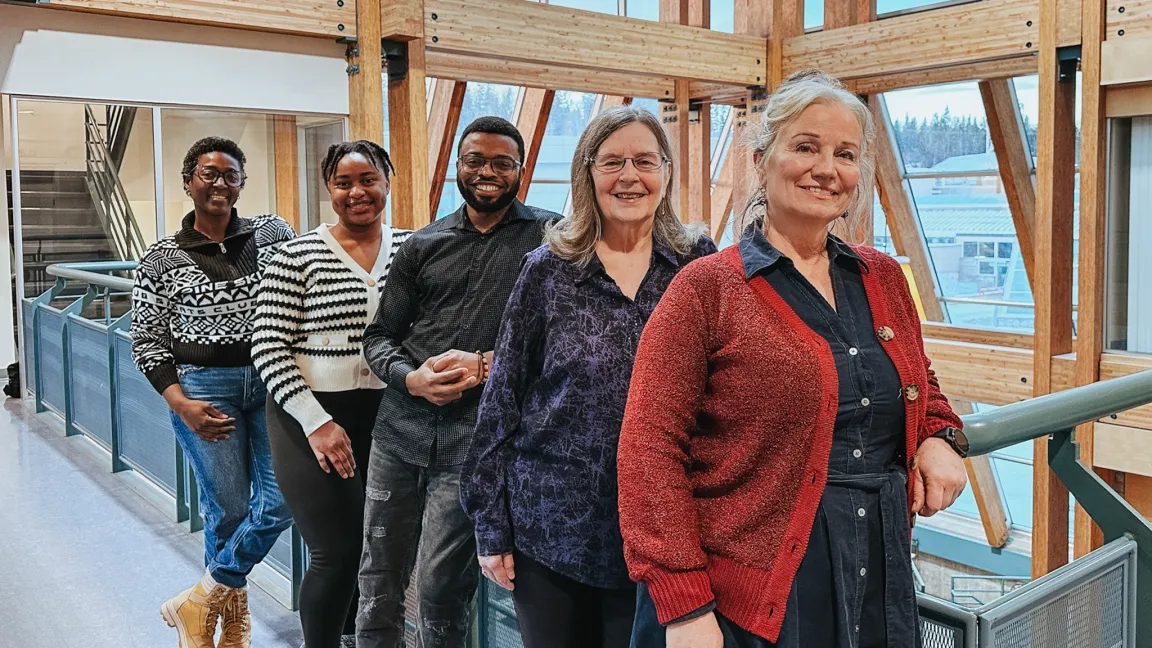Carrier Sekani Family Services and UNBC release research addressing gender-based violence
The joint research project highlights community-driven solutions to help prevent and reduce instances of violence against Indigenous women, girls and 2SLGBTQIA+ people along the Highway of Tears.

Prince George, B.C. – Carrier Sekani Family Services (CSFS) has released the findings of a research project conducted in partnership with the University of Northern British Columbia aimed at sharing and evaluating best practices for reducing the incidence of violence against Indigenous women, girls and 2SLGBTQIA+ people (MMIWG+) along Highway 16 in north-central B.C.
CSFS has been at the forefront of advancing the interests of the victims and their families along the route known globally as the Highway of Tears since a community symposium in 2006 resulted in 33 recommendations centred around victim prevention, emergency readiness, victim family support and community development.
As part of a commitment to ensuring the calls to action are realized, CSFS launched this joint research initiative to provide a current data scan on the number of MMIWG+ cases in northern B.C., as well as a scan of preventative programs in place in the region and across English-speaking North America. Working together, CSFS and researchers at UNBC's Northern Feminist Institute for Research and Evaluation (Northern FIRE) consulted with Indigenous community members and service providers to analyze the effectiveness of current programs and practices.
Their findings and recommendations are contained in a report titled, “When Is the Solution Going to Start Happening? Missing and Murdered Indigenous Women, Girls, and 2SLGBTQIA+ People: Moving from Tragedy to Prevention through Community Knowledge and Action”.
Read CSFS full release here: https://www.csfs.org/MMIWGReport2025
“This was a collaborative research project with Carrier Sekani Family Services aimed at making positive change through both an environmental scan and consultation with communities,” says UNBC Research Lead, Women's and Gender Studies Professor Dr. Jacqueline Holler.
“It was the willingness of the Highway of Tears families to work with us and share their knowledge and the engagement of communities and participants along Highway 16 that made this research possible.”
Holler and UNBC Professor Emerita Dawn Hemingway worked with four student researchers who were trained and assisted in every step of this important project, from learning how to run focus groups to compiling the data and literature scans.
“My first connection to the stories of missing and murdered Indigenous people was in 2022 when I attended a Redress event in Lheidli T’enneh Memorial Park,” says Oliveth Orijocha, who was a graduate student in International Studies at the time. “The moment sparked a strong desire to learn more, to support in any way I could as an ally and to stand alongside those working toward justice and healing.”
Now the Research and Development Coordinator at the Central Interior Native Health Society, Orijocha says the project was an opportunity to deepen his understanding and contribute meaningfully to this critical issue.
“It was a chance to honour the stories of those affected and walk in solidarity with Indigenous communities striving for change.”